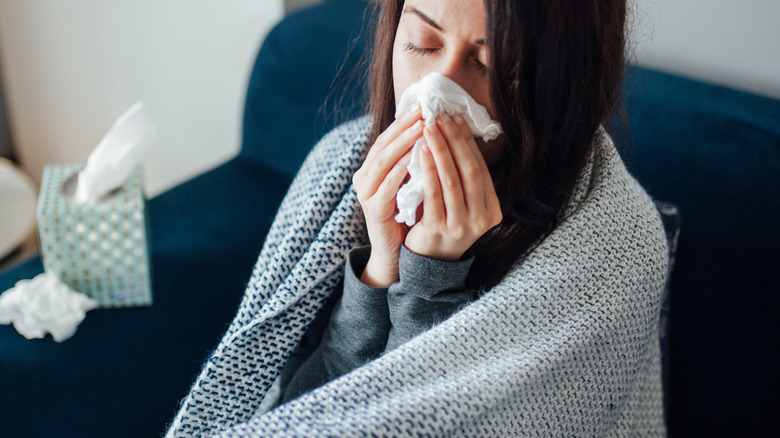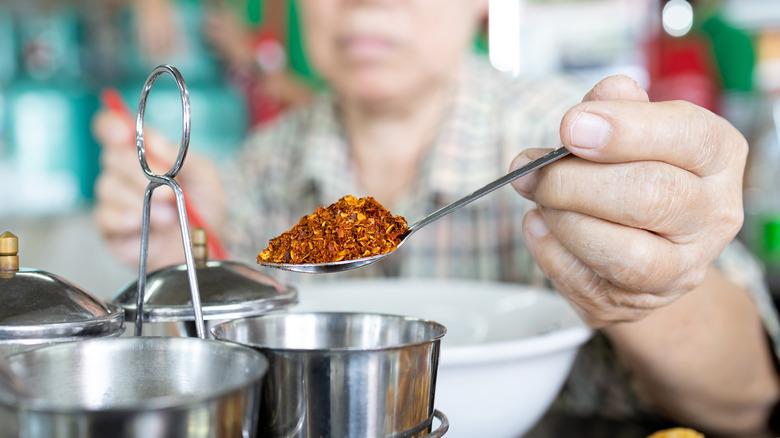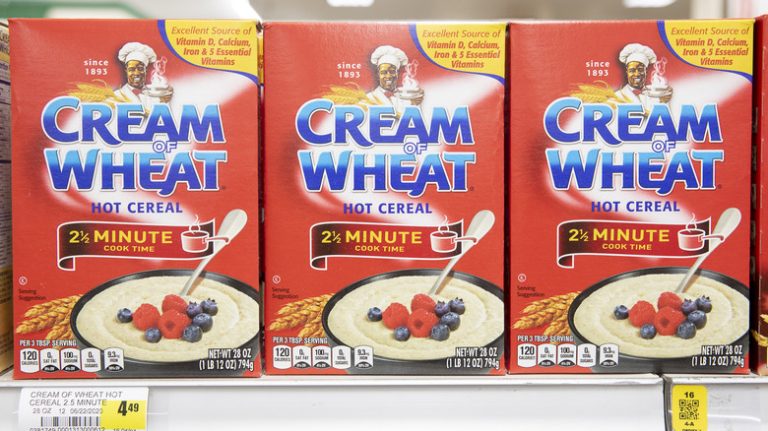For any self-proclaimed fan of spicy food, a meal is never quite complete without adding a bit of the fiery stuff. While spicy foods aren’t everyone’s cup of tea, many people worldwide find delight in each spicy bite. Some individuals even indulge in spicy foods not just for the thrill but also for the scientifically-supported benefits they offer.
In a 2019 study published in the Journal of the American College of Cardiology, researchers examined the chili pepper consumption habits of 22,811 Italian adults and discovered that those who enjoyed at least four spicy meals weekly had a reduced risk of dying compared to those who avoided spicy foods. A 2015 study involving nearly half a million Chinese adults (via the BMJ) echoed these findings; the scientists reported a 14% lower risk of death among individuals who consumed spicy foods daily compared to those who had them less than once a week. Additionally, spicy foods may boost metabolism, combat inflammation in the body, enhance the body’s defenses against bacteria, and potentially inhibit cancer cell growth (according to Healthline).
But does eating spicy foods truly hold the secret to overcoming a cold? Many people believe spicy foods can help them get rid of nasal congestion. However, the reality is a bit more nuanced.
Spicy foods can help with cold symptoms

According to GoodRx, the spices we incorporate into our meals contain capsaicin, an active compound that creates a burning sensation when it touches the tongue and taste buds. Regardless of how it’s prepared—be it cooked, raw, or simply dried—consuming foods rich in capsaicin like chili peppers allows the body to benefit from their effects.
In an interview with TIME Magazine, Dr. Brett Comer, a surgeon and specialist in ear, nose, and throat disorders at the University of Kentucky College of Medicine, explained that eating food with a certain level of spiciness can increase fluid production not just in the eyes, nose, and mouth but throughout the digestive and excretory systems. “When your mouth or throat encounters any noxious foreign object, the thinking is that liquid helps to move that out,” Comer added. Sometimes, the mucus amount entering the gastrointestinal tract might be enough to cause stomach issues for some individuals.
For this reason, consuming spicy food during a cold can alleviate symptoms. As Rochester Regional Health explains, capsaicin in spicy foods can break down mucus in the respiratory system and boost its production. This can ease sore throats and coughs, though it might also lead to more mucus running down the nose (and excessive sweating).
But spicy foods do not cure the common cold

Unfortunately, the relief provided by spicy foods for cold symptoms may have led to the misconception that they can solve the problem entirely. While consuming spicy foods during a cold can make you feel less miserable, it won’t cure you. As you’ve likely learned from science classes, there is no cure for the common cold.
According to Scientific American, experts have been searching for a cure since the mid-20th century without success. Edinburgh Napier University immunologist Peter Barlow explained that developing a cure for the rhinoviruses causing colds requires addressing every single type—and there are at least 160. “The main challenge with rhinovirus is the number of circulating strains … [i]t’s incredibly difficult to create a vaccine or drug that will target all of those 160 [strains].” In simpler terms, it’s like crafting a key that can open 160 (or more) locks.
The silver lining is that the common cold typically resolves itself within a week or so with rest and proper nutrition (as advised by Mayo Clinic). So feel free to indulge in spicy foods when you have a cold; they won’t cure you, but they might help you (or at least your taste buds) feel better.



